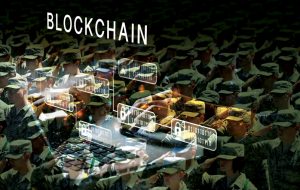In November 2021, on the anniversary of the Forum for Innovation in Military Defense (FID) French Defense Minister Florence Parly unveiled Project Myriade, led by the “Red Team”, a group of science fiction authors alongside military experts who have put their imaginations to the service of the French General Staff, to anticipate the potential risks resulting from the various ways of manipulating public opinion, and thus anticipate scenarios of future threats and wars.

This is considered the French army’s first step towards preparing for the so-called “Cognitive War”, which according to recent literature on the matter, will be the main form of future wars.
What is the definition of cognitive warfare and what are its forms and objectives? What is the “Red Team”? Who does it include? What work mechanisms does it utilize? What are the French Ministry of Defense’s desired results?
This study is attempting to answer these questions in the following lines:
What is the definition of cognitive warfare and what are its forms and objectives?
The speed and extent of information spread have increased greatly today because of technological innovations and developments, which left a tremendous impact on the world’s geopolitical landscape, without having to resort to military action or war in the traditional sense.
In this context, governmental and non-governmental actors use technology and psychology to wage cognitive wars against countries, entities, or institutions that they classify as enemies or competitors, and which are often not ready for such tactics and their scale.
Cognitive war has changed the concept of conflict and has become the main form of future wars and conflicts.
This type of war easily targets trust, which is the main pillar of a country’s “strategic strength”, using the minimum amount of resources and ensuring the achievement of the maximum target results, by creating contradictions between the state and society on the one hand, and between the groups that make up society on the other, through the exploitation of every means available to disrupt that relationship, which is the umbilical cord of social capital (i.e. the level of trust and belonging between the members of society and their ability to work side by side to achieve common goals).
This war “aims to essentially destroy the hostile state through the occupation of hearts and minds, rather than land, or at the very least weakening the state enough to impose the external will and dictate conditions on it, which used to be the result of military occupation but with much greater losses than targeting social capital by cognitive warfare”.
This has led to a transformation in the forms of conflicts from “armed wars” to “wars of control over the minds of the target audience” by fueling its hatred of the ruling political authority, sabotaging the democratic process, provoking racial, ethnic, or religious unrest, or inciting and supporting separatist movements.
Cognitive war targets and reinforces cognitive biases, a psychological phenomenon that tends to change the information captured by the senses and distort reality, which the Nobel Prize-winning psychologist Daniel Kahneman, explains in detail through his analysis of how the mind works when making decisions.
Kahneman divided human thought into two types:
The first type which he called (System 1) revolves around Fast Thinking, through which, conclusions are reached automatically without much thought or contemplation, and so it does not require mental effort and usually creates wrong feelings.
The second type called (System 2), involves slow thinking, characterized as being thoughtful and rational, based on mental activities that require more effort and is activated and developed only through activities that require mental effort.

According to Kahneman, the prevailing type of thinking around the world is the first one, as most humans are inclined to make mistakes due to cognitive biases, most notably:
The halo effect: the false generalization based on false perceptions.
Probabilistic inference: The tendency to place greater value on widespread emotionally charged information.
Hindsight bias: Drifting towards the outcome of a situation.
The anchoring effect: Holding on to known information and using it as a reference, even if it lacked logic.
The herd effect: Drifting with a dominant opinion or judgment.
Confirmation bias: Always looking for information that confirms one’s beliefs and rejecting everything that opposes them, even if it is more reasonable.
Overconfidence: Making decisions based on your opinion and intuition alone, while neglecting the fact that learning is a continuous process as well as the need to diversify sources of knowledge.
Loss aversion: Fear of loss rules much of human behavior, as most people prefer taking risks to avoid losing, rather than to reap profits, as the pain of losing is twice as great as the pleasure of winning.
In his book “Apocalypse cognitive”, sociologist Gerald Brunner, confirmed the existence of these cognitive biases, which lead to mistakes.
When we take into account Brandolini’s law which states that “the amount of energy needed to refute nonsense is much greater than that required to produce it”, we find that nonsense has a competitive advantage in the knowledge market over truth, because restoring the truth is often more expensive than producing nonsense.
This was foreseen by the famous French historian, political theorist, and author of a book on American democracy, Alexis de Toqueville, who said that “a false but clear idea will always have more power in the world than a true but complex idea”, unfortunately, the truth is often complicated.
According to sociologist Gerald Brunner, appointed by the French president Macron, Chairman of the Anti-Disinformation Committee, misinformation spreads “faster, deeper and wider” than real information, and false information is 6 times faster and is shared and re-shared more than real information.
Brunner said that the state must allocate a body that aims to determine the truth based on scientific consensus, and equating the word of a university professor with a political activist is unacceptable.
To complicate matters further, the first impression that misinformation makes does not fade quickly even when a person knows it is actually wrong. Thus, these virtual worlds, which are built on “nonsense as alternative realities”, can obliterate “real life”.
Cognitive warfare depends mainly on a multidisciplinary approach that combines social sciences and new technologies to control knowledge and thus control the decision-making process in a way that leads to the destabilization or paralysis of the opponent.
In other words, cognitive warfare aims to hack the human mind to “win the war before it begins”, which was confirmed by the French Army Chief of Staff General Thierry Burkhard, who said, “The human mind has become the battlefield of the twenty-first century” and as James Giordano said, strategically this isn’t new, as work on the mind has always been the structuring element in that field.
Strategically it is well known that above all you have to know your enemy, understand your opponent’s mind, and even manipulate it.
This has always been important to winning battles and wars, as evidenced by the example of German Chancellor Bismarck’s success in persuading Napoleon III to wage the unwise Franco-Prussian War, which ultimately led to the collapse of the Second French Empire.
Therefore, Cognitive war can be defined as a “cognitive and psychological process of disinformation” to guide and mobilize the public to create cracks in societal harmony and damage trust in institutions, by spreading malicious information and fake news, while intentionally amplifying it through social media, online platforms, leaks, videos, as well as out-of-context images and caricatures to gain a competitive advantage over an opponent, by influencing and perhaps controlling the thoughts and perceptions and thus the actions of a large segment of its components.
In the end, we must point out that cognitive warfare (affecting the opponent’s decision-making process, confusing him, and ultimately paralyzing his movement to win it) does not constitute a radical revolution in warfare, however, it is more than just an old concept in a new suit, as it is characterized by being more focused than ever on exploiting the weaknesses of the human mind, as well as combining information warfare, offensive cyber operations and psychological operations to intimidate, influence and manipulate the opponent to coerce the will of those who use them even before the war starts.
Thus it must be better integrated into the ground, naval, air, space, and electronic operations of militaries, which is what NATO recently did, after realizing the following:
1- The opponent’s attempts to manipulate human behavior will pose a continuous challenge to the defense and security of the Allied nations, and this emerging threat, in the form of cognitive warfare, goes beyond controlling the flow of information, as cognitive warfare aims to change what people think as well as how they act.
2- Cognitive attacks require the integration of cybernetics, misinformation, psychology, and social engineering capabilities, which represents a major challenge for the traditional decision makers’ operating environment and their ability to detect and counter-attacks against the cognitive domains of their countries or institutions.
3- The human mind is the battlefield and the contested area in this type of warfare, as the goal of that war lies in sowing disharmony, provoking contradictory narratives, polarizing public opinion, encouraging extremism of groups, and making people act in ways that could disrupt or disintegrate the cohesiveness of society, to influence the decision-making process, and change policies and worldviews, causing distrust between allies.
To counter the aforementioned issues, NATO launched an appeal to non-traditional thinkers and innovators working in the private or public sector or in academia from all NATO member states to join it in thinking of ways to safeguard the cognitive space of NATO member states from attack and encroachment and search for new techniques and measures to confront the war waged on the minds of the citizens of those countries.

Given the danger of cognitive warfare that can now target multiple audiences simultaneously to affect the adversary strategically, the French Ministry of Defense Innovation Agency caught up to NATO and launched a project called MYRIADE to explore new technologies related to cognitive warfare and make the necessary efforts to secure “the French decision-making process” and achieve a sufficient level of “collective cognitive security” (i.e. a better prepared and educated population, able to defend themselves against “weaponized narratives” and “cognitive attacks”).
On the military level, the project aims to “win the war before the war”, by making the French armed forces more qualified to repel cognitive aggression and more prepared to target the mind of the opponent in turn.
More specifically, the project seeks to better adapt military leadership to the cognitive dimension of multi-domain warfare, harmoniously combining the human mind and digital technologies so that it can surprise the enemy without being caught off guard.
In the following lines, we will try to explore the MYRIADE project by focusing on the “Red Team”, considered the heart and mind of this project, by revealing some of its employees, work mechanisms, and expected achievements.
What is the “Red Team”, who is it composed of, what are its mechanisms, and what does the French Ministry of Defense expect from it?
France realizes that it is lagging behind in the field of cognitive warfare compared to China, which long ago realized that cognitive warfare is “The eventual front of military confrontation between the major powers.”
For his part the Russian general and chief of staff Valery Gerasimov coined the term “New Generation Warfare”, explaining that relations between states are currently gray areas in which the lines between peace and war, alliance and hostility, cooperation and competition, blur to the extent that these binaries become indistinguishable from each other.
From now on, Day Zero has become the morning of every new day, in what has become known as the Gerasimov doctrine, which implies that there is a set of non-conventional and non-military tools used to wage the current wars, most notable of which is cognitive war, which is one of the forms of “the war before the war”.
This doctrine is based mainly on the idea that the rules of war have changed dramatically, and that the role of non-military means necessary to achieve political and strategic goals has grown significantly, and in many cases exceeded the power of conventional armies in terms of effectiveness, as there aren’t announcements of wars anymore, and wars begin, continue and end without the public knowing about it, because of their unfamiliar approaches and shapes, like the so-called Arab Spring.
In January 2021, the French Ministry of Defense announced through its strategic update statement that the manipulation of information has become an essential element in the strategies of cognitive war utilized by France’s opponents, with the aim of confusing it, affecting its decisions, or paralyzing its movement
For her part, the French Minister of Defense, Florence Parly, confirmed, on October 20, 2021, while presenting the new military doctrine of the French army, during the Forum on Innovation in the Field of Military Defense (FID), that false, manipulated or misleading narratives or information are weapons, and if used properly they allow competitors and enemies to win without a fight.
Parly explained that they represent “a new form of threat that combines the capabilities of information manipulation and misinformation, cybernetics, psychology, social engineering, and biotechnologies to create a new form of warfare: “cognitive warfare” which could be summed up in the ability to exploit the weaknesses of the human mind to attack itself, thus combating misinformation and narratives fueling tensions, hatred, and cognitive assaults that have been amplified by the digital revolution has become more important than ever for armies because this misinformation is now resolving confrontations and strategic competitions.
Given this, using the Red Team, the French Ministry of Defense aims to put science fiction at the service of military strategic thinking.
The Red Team consists of distinguished French science fiction writers, under the supervision of the Defense Innovation Agency (AID) along with the General Staff of the Armed Forces (EMA), the Directorate General of Armaments (DGA), and the Directorate General of International Relations and Strategy (DGRIS) cooperate with French modern technology companies, with the purpose of its formation is to provide the French Ministry of Defense with forward-looking visions to anticipate the technological, economic, social and environmental risks that are likely to generate potential conflicts by 2030-2060 and to devise means to confront them.
Believable and rooted in reality, the Red Team is putting its imagination at the service of the French Ministry of the Armed Forces, by presenting it with futuristic scenarios in various areas related to strategy, which may very soon change the current strategic and tactical certainties of the French army and its affiliated bodies, by integrating cognitive war with the capabilities of cyber, information, psychological and social engineering to achieve the French state.
Among the French science fiction authors selected is LaurentGenefort, author of about 50 novels and winner of several Grand Prix de l’Imaginaire (grand prize of the Imaginary) for science fiction in France, who said on this occasion, “The Ministry of Defense opened its doors wide for me, it was so much fun! It’s a kind of a hybrid training between science fiction and strategic foresight.” So the work of the Red Team represents a meeting between fiction and reality.
For his part, Emmanuel Chiva, one of the leaders of the Military Innovation Agency in the French Ministry of Defense and supervisor of the Red Team, says that he is “very satisfied with the result” and the integration between army officers, science fiction authors, and technology experts. He added, “The role of the Red Team is to prevent the military from sleeping, and we will succeed in our mission if the Army does not stop thinking of answers to future threats.” Through the Myriade project, the French Ministry of Defense seeks to first answer the following questions: Why are some countries more vulnerable to cognitive warfare? How do enemy states use cognitive warfare for cumulative gain? What strategies and tactics could be used to confront these wars? What are the strategies and tactics for waging cognitive warfare? Secondly, the formation and preparation of a military command adapted to cognitive conflicts and wars and can win them through the following 3 integrated axes:
1- The necessity of guarding against individual and collective cognitive imbalances in France
This requires knowing and identifying current and future cognitive biases to develop a plan to address them, contributing to the development of education and training programs and periodic simulation exercises necessary to hedge against individual and group “cognitive errors”, controlling the flow of information leading to cognitive dissonance and “information overload” and finding biases in algorithms or Databases used in foresight, achieving a balanced integration between the human element and technology to maintain clarity amidst complexity in war or, as the French writer Bruno Patino puts it, the philosophical lights should not be turned off in favor of digital signals.
2- Defense against perpetual information aggression and the opportunistic exploitation of the cognitive biases of the French by opponents
This may limit, distort or completely paralyze the French decision-making process as the main adversaries have recognized the weaknesses of our societies, to which our armies belong.
During a congressional hearing in April 2021, American scholar Herbert Lane highlighted the most prominent of these challenges: the limited rationality of actors and the “free market of ideas” that our competitors can exploit to their advantage by exploiting the porous nature of the frontiers of institutional and foreign information to deliberately spread malicious narratives.
Facing these challenges is the responsibility of both society and the military, therefore, cognitive war requires a multi-disciplinary approach that includes the whole government, which promotes better integration between electronic and information fields to defend one of the most important assets of democracy, which is information.
On a purely military level, the French Ministry of Defense seeks to make its command and control structures flexible enough to take advantage of modern technologies while reducing the risks of automation, cognitive dissonance, and “information overload” as much as possible.
3- Offensive cognitive warfare: Cognitive warfare is based on the strategic element of surprise, represented in the absence of the opponent’s awareness of what is being planned, therefore, the command and control structures in the French army must evolve to promote better integration of the effects of what will be agreed upon, between it and the red team in all areas. The US is a pioneer in this field, as the US army has created a multidisciplinary working group called “the I2CEWS battalion”, which includes intelligence, information, cyber, electronic warfare, and space, in addition to a battalion of air defense.
Conclusion
As our modern world transforms into a multipolar world, the rising powers are likely to adopt new strategies, including cognitive warfare, which represents a beginning of a new era of conflicts and competitions, as confirmed by a report titled “How the US National Intelligence Council sees the world in 2040”, which foresees that there will be increasing fragmentation and competition within societies on economic, cultural and political issues on the individual and societal levels. Rapid social and technological changes will make large segments of the world’s population antagonistic to institutions and governments that they will see as unwilling or unable to meet their needs. People will be more and more attracted to familiar groups, organizations, and institutions that share their traditional ideas, including those based on ethnic, religious, and cultural identities as well as interests and advocacy of specific issues, such as environmental protection. On the one hand, the growing identity allegiances, and an isolated information environment on the other will exacerbate rifts within states and undermine civic nationalism, and increase volatility. Therefore, it is vital in this context to transform the role of armies in the face of these dangers and challenges, by integrating the confrontation of cognitive wars waged against them by the so-called “epistemological or intellectual hitmen” who plan the cognitive assassination of nations. Armies should also consider the protection and defense of social capital as part of the concept of national security, just like border protection.
« By: Dr. Wael Saleh, PhD
(lead researcher and Head of the Global Trends Follow-up Unit at Trends Research)













